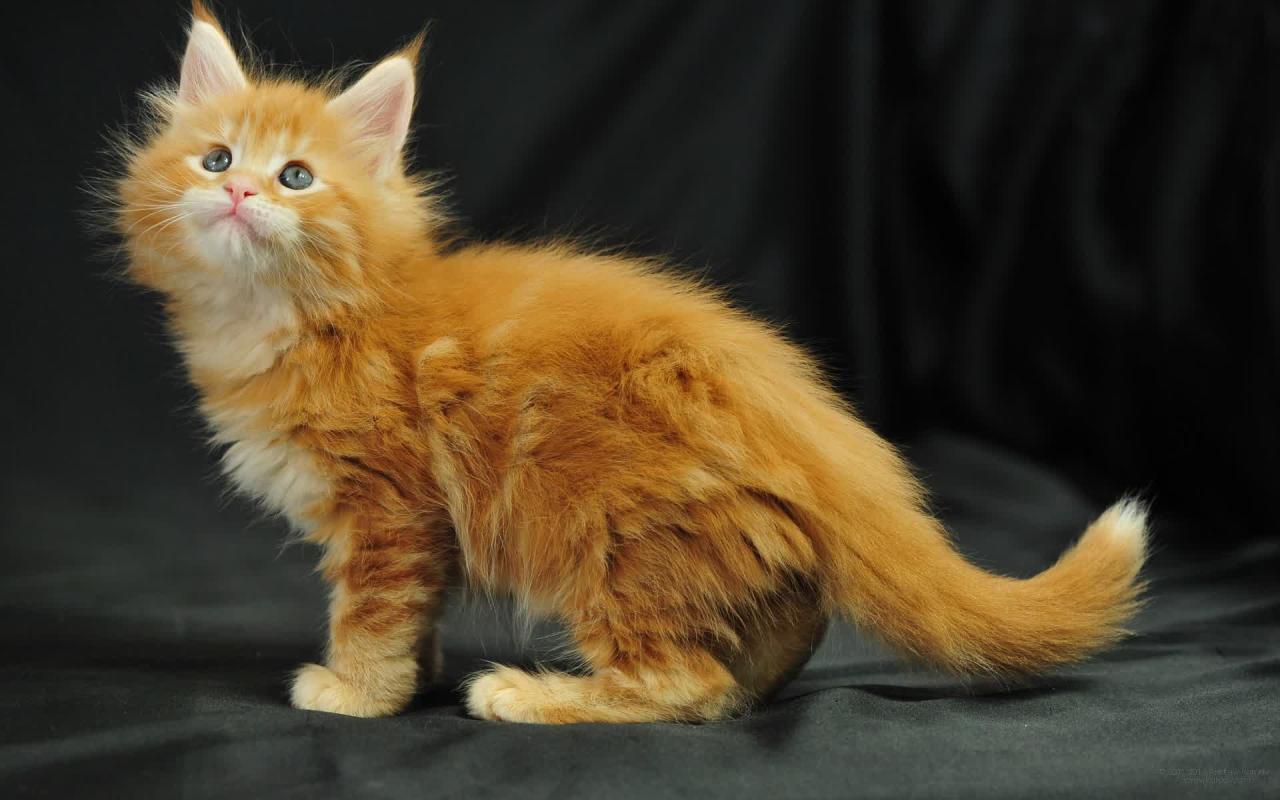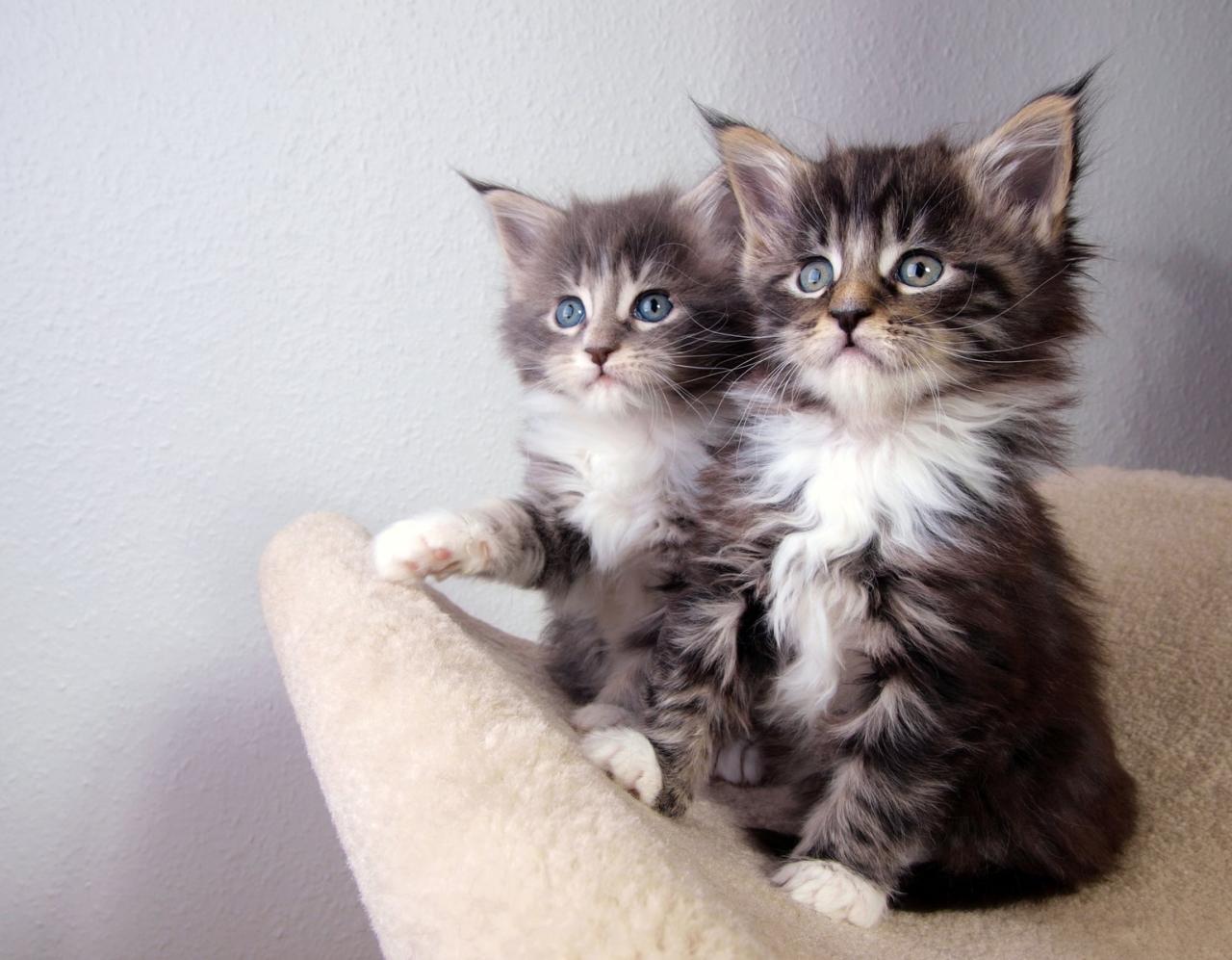Prepare to be captivated by the enigmatic maine coon cat kitty, a feline of extraordinary stature and captivating charm. With its flowing mane, piercing gaze, and gentle demeanor, this magnificent creature invites you on a journey into the realm of feline elegance and unwavering loyalty.
Unveiling the secrets of this gentle giant, we delve into the intricacies of its physical attributes, temperament, and rich history. Discover the specific care and grooming rituals that ensure the well-being of these majestic cats, ensuring their luxurious coats shimmer with health and vitality.
Maine Coon Cat Breed Overview
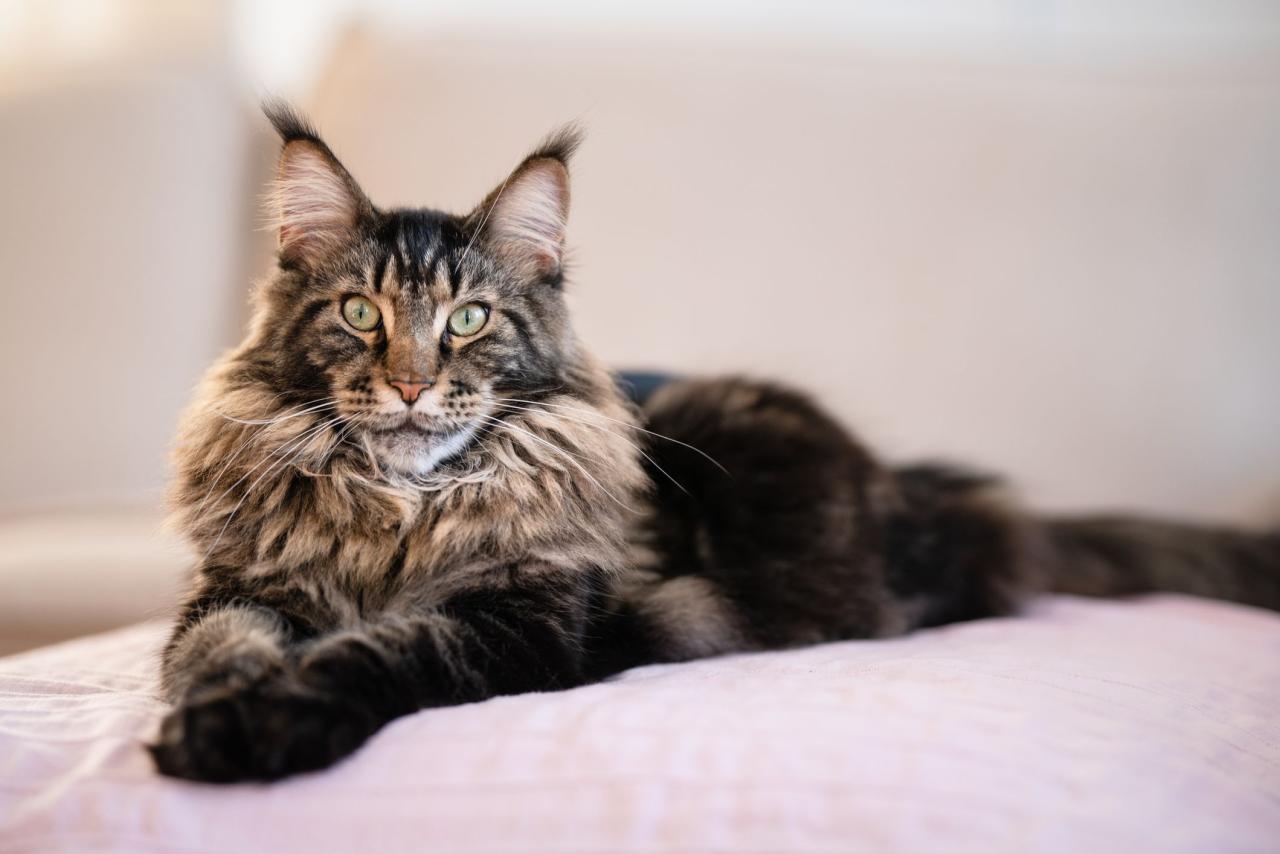
The Maine Coon is a large, semi-longhaired breed of cat native to the US state of Maine. They are known for their distinctive physical characteristics, including a large, muscular body, a long, flowing coat, and large paws. Maine Coons are also known for their gentle, friendly temperament, making them a popular choice for families with children.
History, Maine coon cat kitty
The exact origins of the Maine Coon are unknown, but there are several theories about how they came to be. One theory is that they are descended from longhaired cats brought to North America by Vikings in the 11th century.
Another theory is that they are descended from Angora cats brought to North America by British colonists in the 17th century. Whatever their origins, Maine Coons have been a popular breed in Maine for centuries. They were first recognized by the Cat Fanciers’ Association in 1953 and have since become one of the most popular breeds of cat in the world.
Physical Characteristics
Maine Coons are large cats, with males typically weighing between 13 and 18 pounds and females typically weighing between 8 and 12 pounds. They have a muscular, rectangular body with a broad chest and a strong back. Their legs are long and muscular, and their paws are large and round.Maine
Coons have a long, flowing coat that is available in a wide variety of colors and patterns. The coat is thick and dense, and it helps to keep Maine Coons warm in cold weather. Maine Coons also have a distinctive ruff of fur around their neck, which helps to protect them from the elements.
Temperament
Maine Coons are known for their gentle, friendly temperament. They are very social cats, and they enjoy spending time with people and other animals. Maine Coons are also very playful, and they love to chase toys and play with their owners.Maine
Coons are very intelligent cats, and they are easy to train. They are also very adaptable, and they can live in a variety of different environments. Maine Coons are a great choice for families with children, as they are very patient and gentle with kids.
Maine Coon Cat Care and Grooming
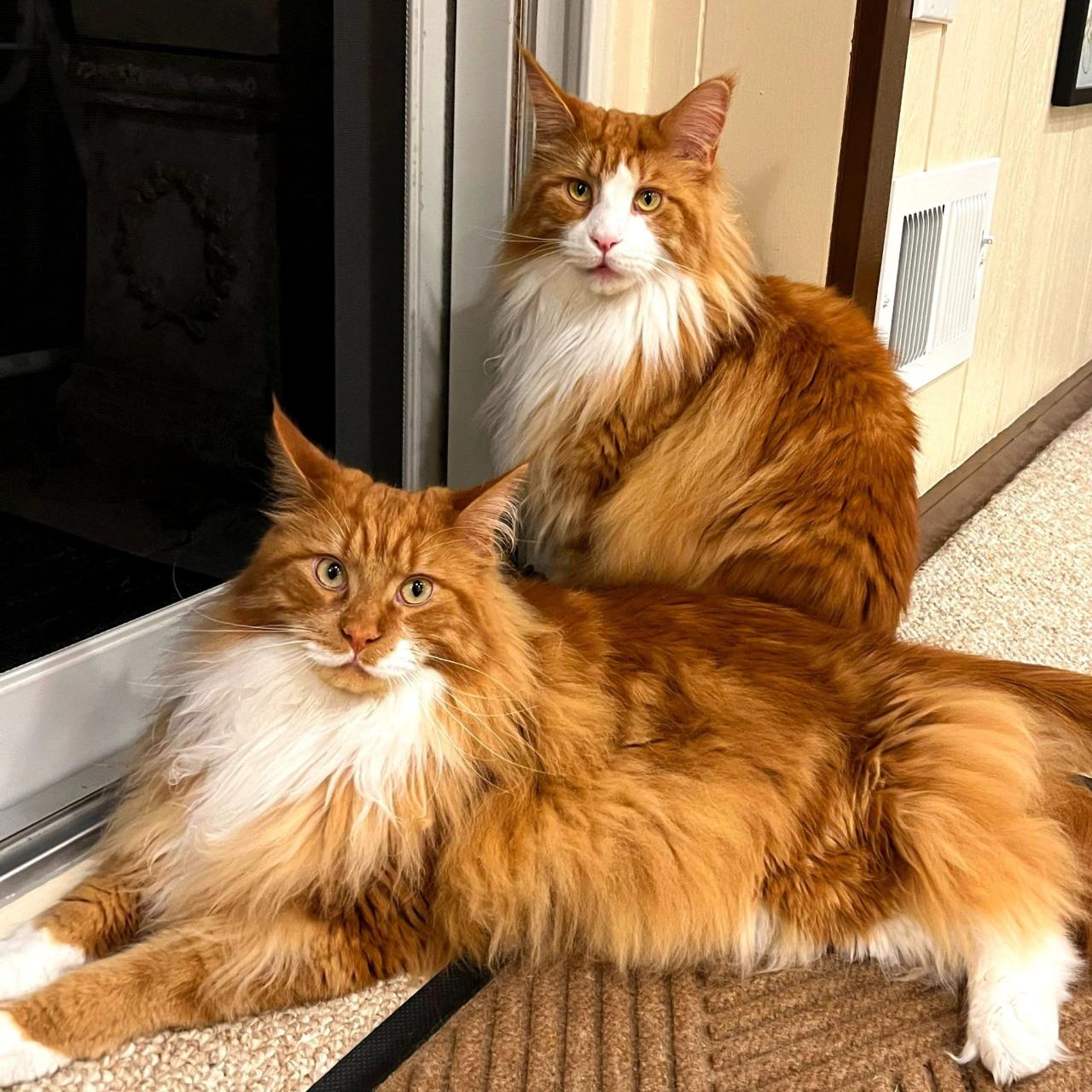
The majestic Maine Coon cat requires attentive care and grooming to maintain its health and well-being. Their long, luxurious coats, robust physiques, and playful nature demand a dedicated approach to ensure their comfort and longevity.
Dietary Needs
- Maine Coons have hearty appetites and require a high-quality diet rich in protein and essential nutrients.
- Choose premium cat food specifically formulated for large breeds, providing a balance of vitamins, minerals, and omega fatty acids.
- Wet food can aid in hydration, especially for senior cats or those with dental issues.
Exercise Routine
Maine Coons are active and playful, requiring regular exercise to stay fit and healthy.
- Provide interactive toys and scratching posts to stimulate their natural hunting instincts.
- Consider leash training to take them on supervised outdoor adventures.
- Regular playtime helps prevent boredom and promotes mental well-being.
Grooming Practices
The Maine Coon’s long, flowing coat is its crowning glory, but it requires meticulous grooming to prevent mats and tangles.
- Brush their fur daily with a wide-toothed comb to remove loose hair and debris.
- Use a slicker brush weekly to detangle and remove undercoat.
- Bathe them every 6-8 weeks or as needed, using a gentle shampoo and conditioner designed for long-haired cats.
Coat Maintenance Tips
- Trim any excess fur around their paws, ears, and belly to prevent mats.
- Regularly check for and remove any mats or tangles, as they can cause discomfort and skin irritation.
- Consider professional grooming services for a thorough deep clean and to remove stubborn mats.
Health Considerations for Maine Coon Cats
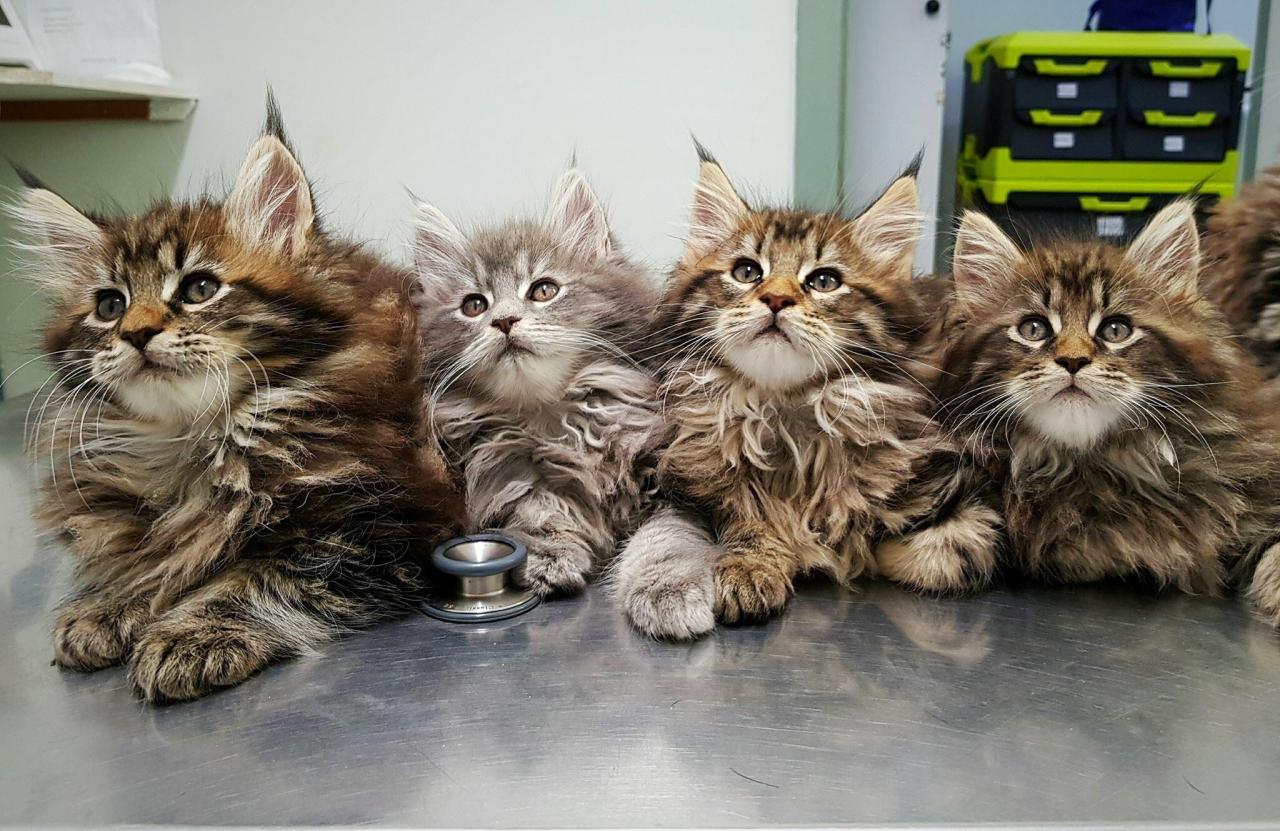
Maine Coon cats, while generally healthy, may be prone to certain health issues due to their breed characteristics and genetic predispositions. It’s essential to be aware of these potential concerns and prioritize regular veterinary checkups and preventive care to ensure their well-being.
Recognizing signs of illness and seeking appropriate treatment promptly is crucial for maintaining the health and longevity of your beloved Maine Coon.
Common Health Issues in Maine Coon Cats
Maine Coon cats may be susceptible to several health conditions, including:
- Hypertrophic cardiomyopathy (HCM):A condition where the heart muscle thickens, potentially leading to heart failure.
- Polycystic kidney disease (PKD):A progressive condition where cysts develop in the kidneys, impairing their function.
- Hip dysplasia:A developmental disorder affecting the hip joints, causing pain and mobility issues.
- Dental disease:Maine Coons are prone to dental problems such as gingivitis and periodontitis due to their large teeth and jaws.
Importance of Regular Veterinary Checkups and Preventive Care
Regular veterinary checkups are vital for detecting and addressing health issues early on. Preventive care measures, such as vaccinations, parasite control, and dental cleanings, help maintain a strong immune system and prevent the onset of preventable diseases. By proactively monitoring your Maine Coon’s health, you can ensure timely diagnosis and treatment, improving their chances of a long and healthy life.
Recognizing Signs of Illness and Seeking Treatment
It’s important to be observant of your Maine Coon’s behavior and appearance to identify any signs of illness. Changes in appetite, energy levels, litter box habits, or physical appearance may indicate a health issue. If you notice any unusual symptoms, don’t hesitate to contact your veterinarian for prompt diagnosis and treatment.
Early intervention can make a significant difference in the outcome of many health conditions.
Training and Enrichment for Maine Coon Cats
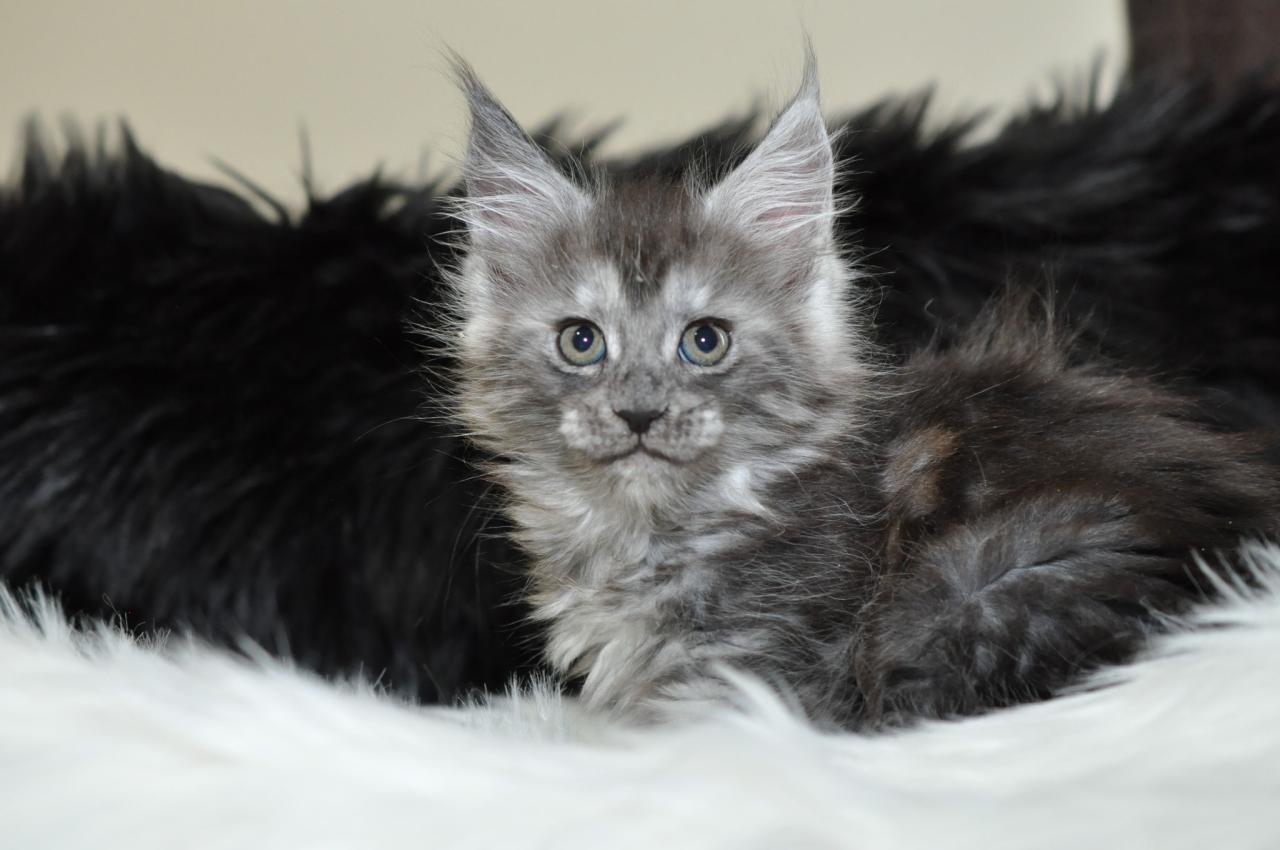
Maine Coon cats are highly intelligent and trainable felines. They are eager to please their owners and enjoy learning new tricks. Positive reinforcement training is the most effective method for training Maine Coons. This involves rewarding them with treats or praise when they exhibit desired behaviors.
Consistency and patience are key when training these cats.
Mental and Physical Stimulation
Maine Coon cats are active and playful animals that require plenty of mental and physical stimulation to stay happy and healthy. Providing them with interactive toys, puzzle feeders, and scratching posts can help keep them entertained. Additionally, regular playtime with their owners is essential for their well-being.
Maine Coon Cat as Family Pets
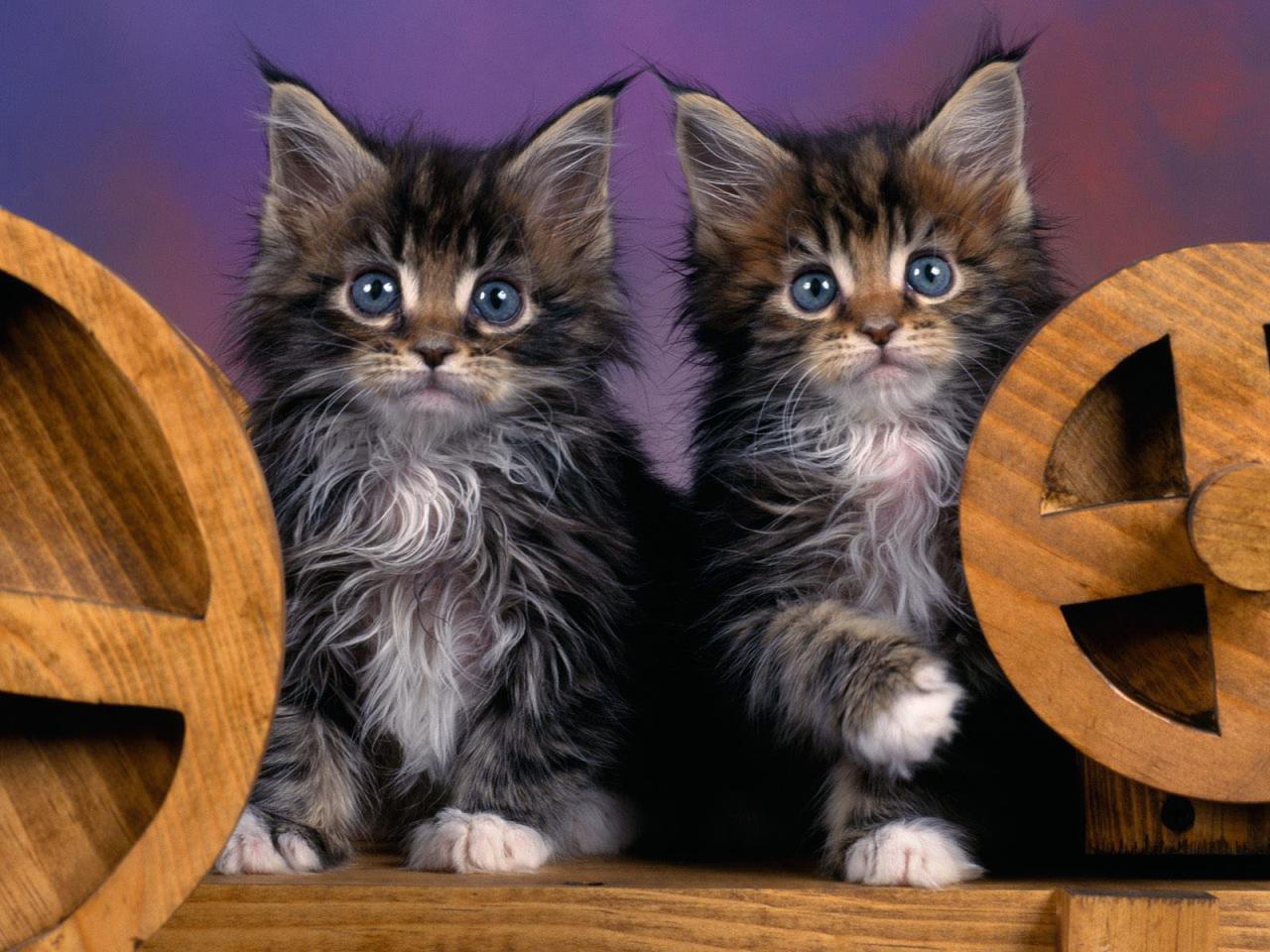
Maine Coon cats are highly affectionate and playful, making them excellent family pets. Their gentle and tolerant nature makes them suitable for households with children and other animals.
Introducing Maine Coon Cats to Other Pets
When introducing a Maine Coon cat to other pets, it’s crucial to proceed gradually. Start by keeping the pets separated in different rooms with the door slightly ajar, allowing them to become accustomed to each other’s presence. Gradually increase the supervised interactions, monitoring their behavior closely.
If they show signs of aggression or fear, separate them and try again later.
Introducing Maine Coon Cats to Children
Children should be taught to approach the cat calmly and respectfully. They should avoid grabbing or pulling the cat’s tail or ears. Supervise interactions initially to ensure safety and teach children how to interact with the cat appropriately.
Last Word: Maine Coon Cat Kitty
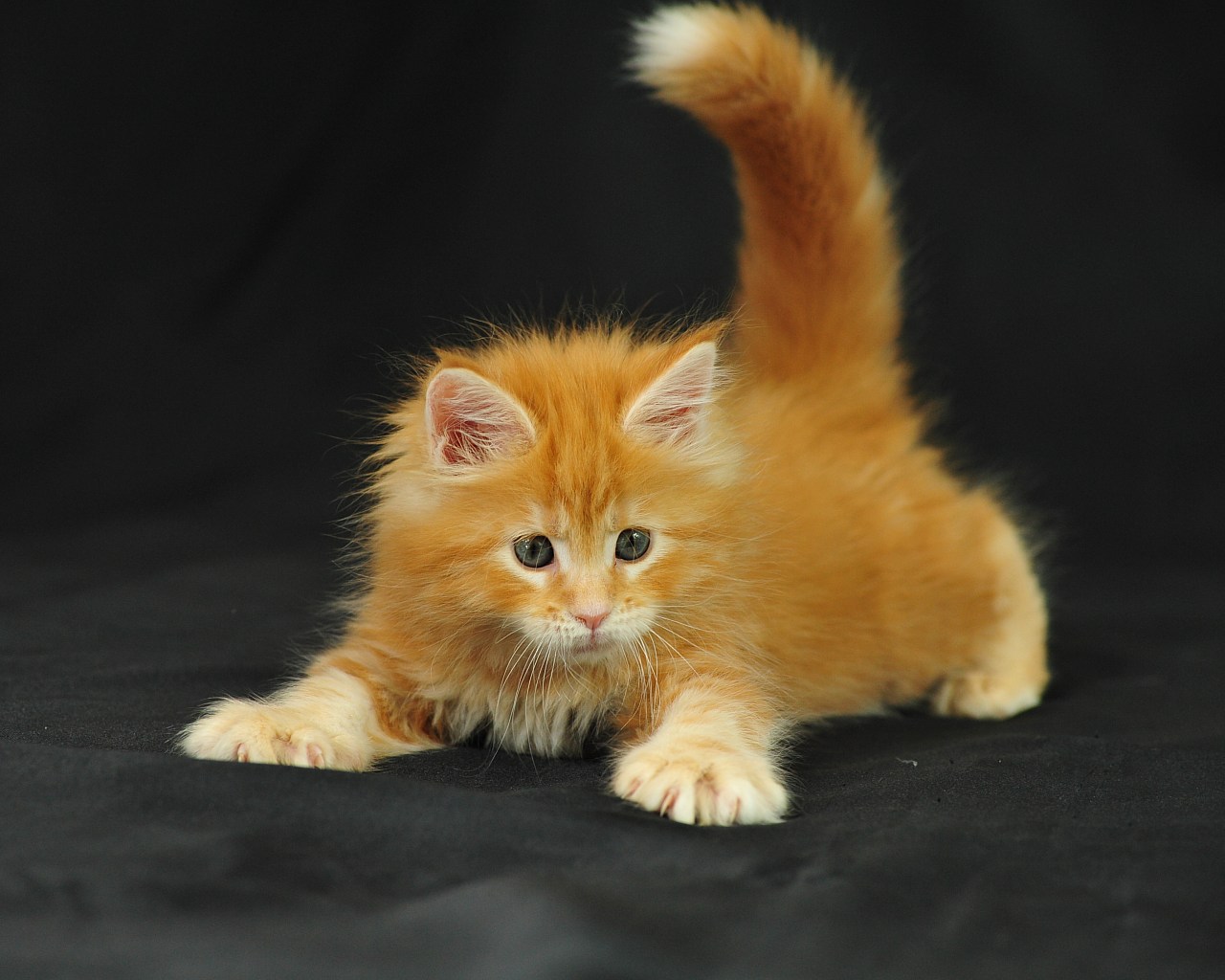
As we bid farewell to our exploration of the maine coon cat kitty, let us cherish the memories of its captivating presence. Its affectionate nature, playful spirit, and unwavering loyalty leave an enduring mark on our hearts. Whether gracing the halls of a grand manor or sharing the warmth of a family home, this feline companion embodies the very essence of feline grace and unwavering companionship.
